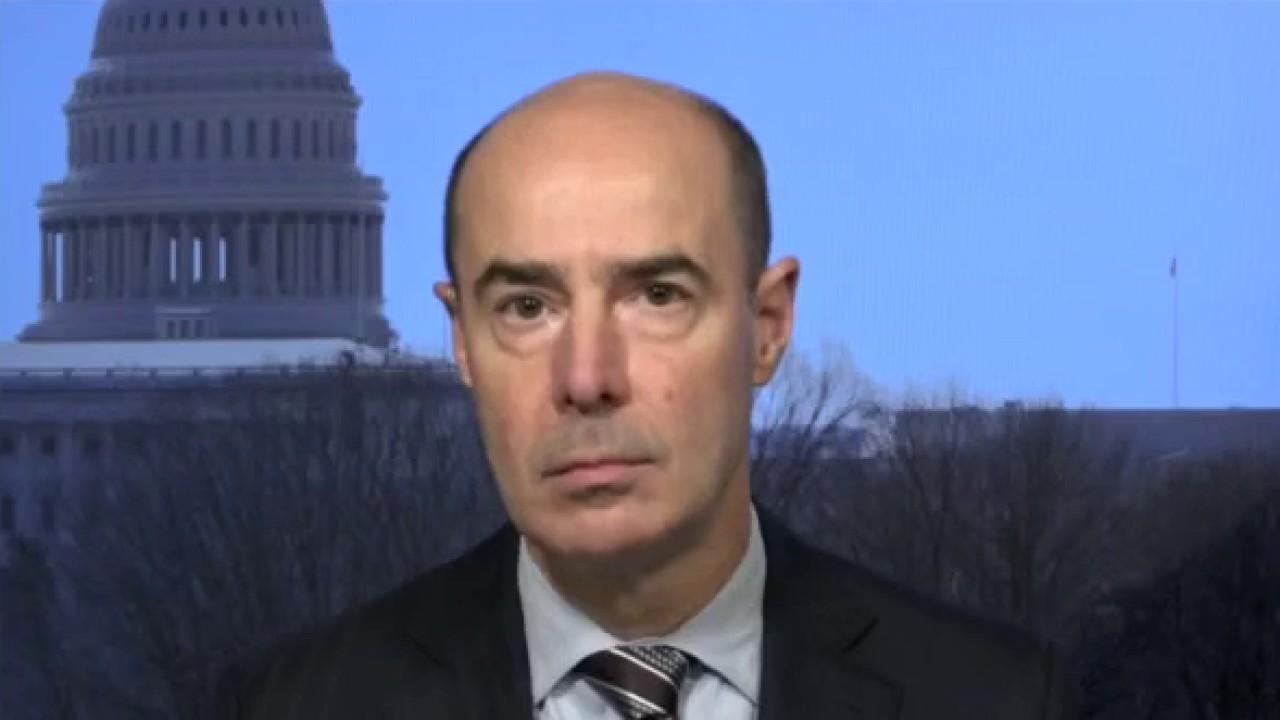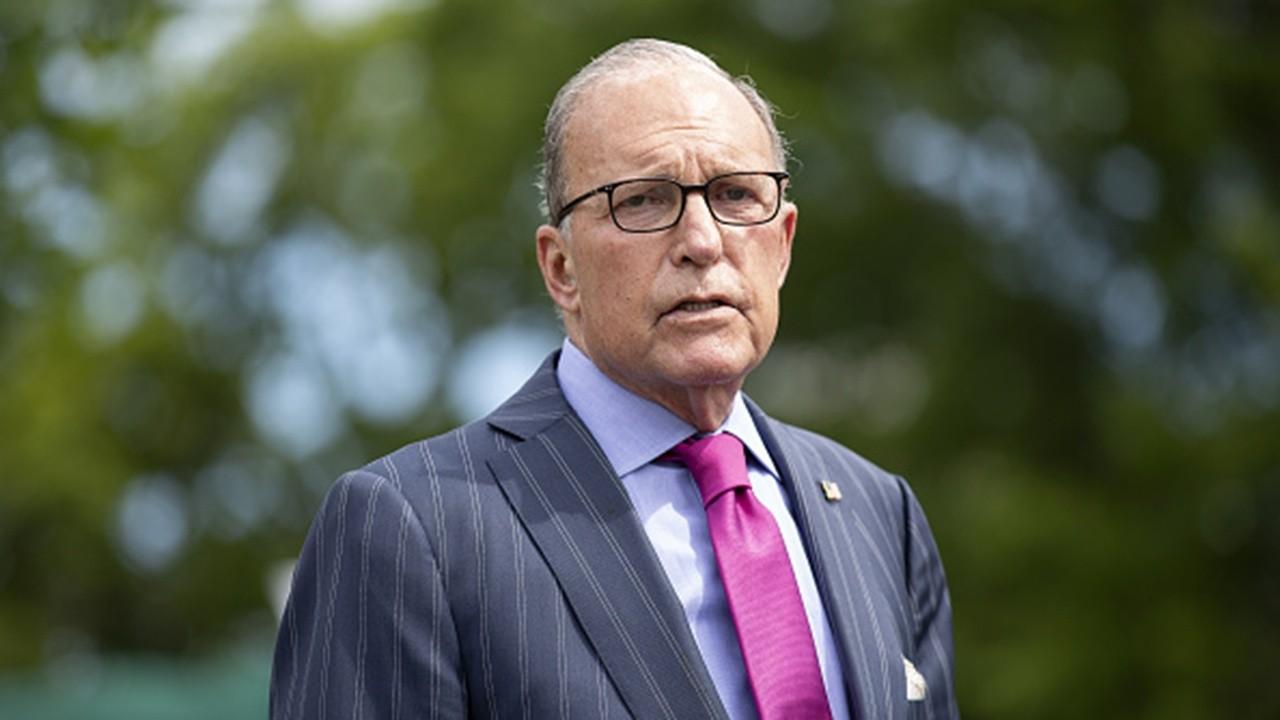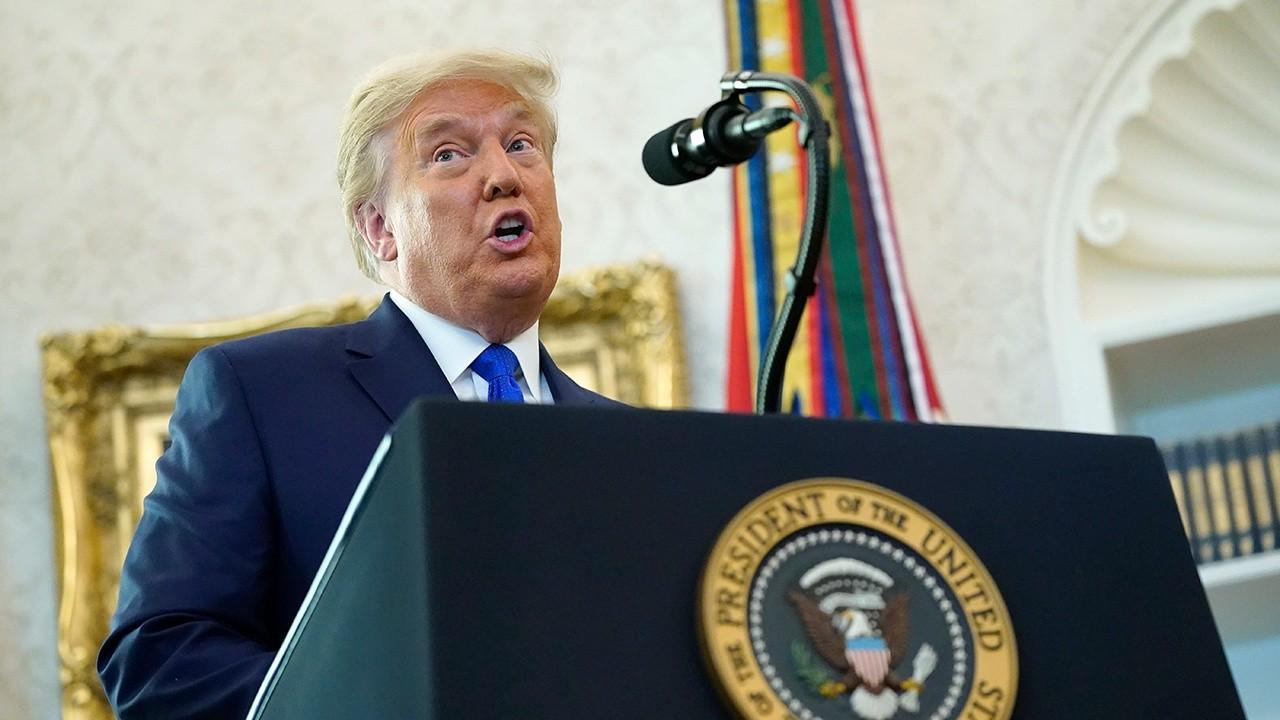Unemployment rate will drop below 5% in 2021: US labor secretary
5% unemployment 'is attainable' because of Operation Warp Speed, Eugene Scalia says
U.S. Labor Secretary Eugene Scalia believes the unemployment rate will drop below 5% in 2021, acknowledging on Tuesday that it is a “lofty goal,” but “is attainable” because of Operation Warp Speed.
“Operation Warp Speed's goal is to produce and deliver 300 million doses of safe and effective vaccines with the initial doses available by January 2021, as part of a broader strategy to accelerate the development, manufacturing, and distribution of COVID-19 vaccines, therapeutics, and diagnostics,” according to the U.S. Department of Health and Human Services.
Scalia noted on “Mornings with Maria” on Tuesday “how amazing the economy was before COVID” with an unemployment rate of 3.5 percent before the pandemic, its lowest level since 1969, according to the U.S. Bureau of Labor Statistics.
Scalia pointed to positive developments as it pertains to a COVID-19 vaccine, specifically that Britain approved Pfizer Inc’s vaccine last week.
He went on to say that there will be “important steps taken this week in the U.S.” on the vaccine front.
“I think this will go down as one of the great achievements in medical history, how quickly a vaccine was developed,” Scalia told host Maria Bartiromo. “That will change things even further and I think you combine that with adherence to the kinds of policies this president had, which produced that amazing economy, and I think you do get back to 5% next year.”
Scalia also highlighted the key points of the Labor Department's November payroll report released Friday.
The November data, reflecting payroll employment for the week ended Friday the 13th of that month, showed the U.S. economy added 245,000 jobs in November as the unemployment rate fell to 6.7%. Wall Street economists surveyed by Refinitiv were expecting the addition of 469,000 jobs.
October's initially reported gains were trimmed to 610,000, down from 638,000.
Scalia noted on Tuesday that “when we were talking back in March and April, virtually all forecasters were saying we’d be at about 12% unemployment right now, but we’re at 6.7% unemployment.”
“Remember that five years of the Obama administration we were above 6.7% unemployment. We’re already at 6.7% unemployment,” he continued, noting that “that’s not even the real number for most states because when you look at this at a state-by-state basis, what you see is that fully half the states are at 6% unemployment or lower.”
Scalia then said that the U.S. has “made extraordinary progress,” while acknowledging that the economic recovery has “slowed a bit,” something he attributed in part to a surge in coronavirus cases in cities across the country and restrictions that have been implemented in an effort to slow the spread.
US JOB GROWTH SLOWS IN NOVEMBER AS CORONAVIRUS SURGE THREATENS ECONOMIC RECOVERY
Scalia noted that 344,000 jobs were added in the private sector, which he said is an indicator of a “very strong month in ordinary times.”
He acknowledged that the November data is “not as good as we had been doing in the months immediately before” and that “we want a quicker pace to put back all the jobs that were lost,” but pointed out that “most sectors did grow in November including about 27,000 more jobs in manufacturing, for example.”
According to data, about half of the 22 million jobs lost in March and April during the pandemic have been recovered.
Scalia noted that the November data revealed slowdowns in the government sector where census workers were lost, as well as “a slight drop” in the food and beverage industry as a result of new coronavirus restrictions in states and “maybe some people pulling away from going out” amid a rise in cases.
He also noted that retail, which had been growing, “took a little bit of a drop too.”
A slowdown in the addition of jobs is one of the factors Congress must weigh amid negotiations over the next round of COVID-19 relief.
Senate Majority Leader Mitch McConnell, R-Ky., said Thursday a deal was "within reach" and that he hoped for a package by yearend. He has supported about $500 billion in stimulus while House Speaker Nancy Pelosi of California and Senate Minority Leader Chuck Schumer of New York, both Democrats, called the bipartisan $908 billion package a starting point.
On Tuesday, Scalia slammed Schumer’s suggestion to reinstate the CARES Act's $600 weekly unemployment enhancement, saying it is “not a serious suggestion at all.”
“Remember in the Obama Administration, the federal unemployment plus-up was $25 a week,” Scalia said, noting that the enhanced benefits ended “when unemployment was 9.3% nationally.”
Scalia pointed out that the CARES Act “was extremely important” for the current economic recovery.
GET FOX BUSINESS ON THE GO BY CLICKING HERE
“It is part of the reason that we’ve come back so much faster than from the Great Recession under Obama and Biden,” Scalia said.
“I think that more action by Congress is needed. I’m hopeful that we will see it,” he continued, stressing that “targeted relief at particular sectors is especially valuable.”
He also noted that “the president has been trying to get additional help out since,” however, “Pelosi obstructed, obstructed, obstructed and now postelection, after, in part, some really substantial losses of House seats, she apparently has finally come to the table.”
CLICK HERE TO READ MORE ON FOX BUSINESS
FOX Business’ Jonathan Garber contributed to this report.






















